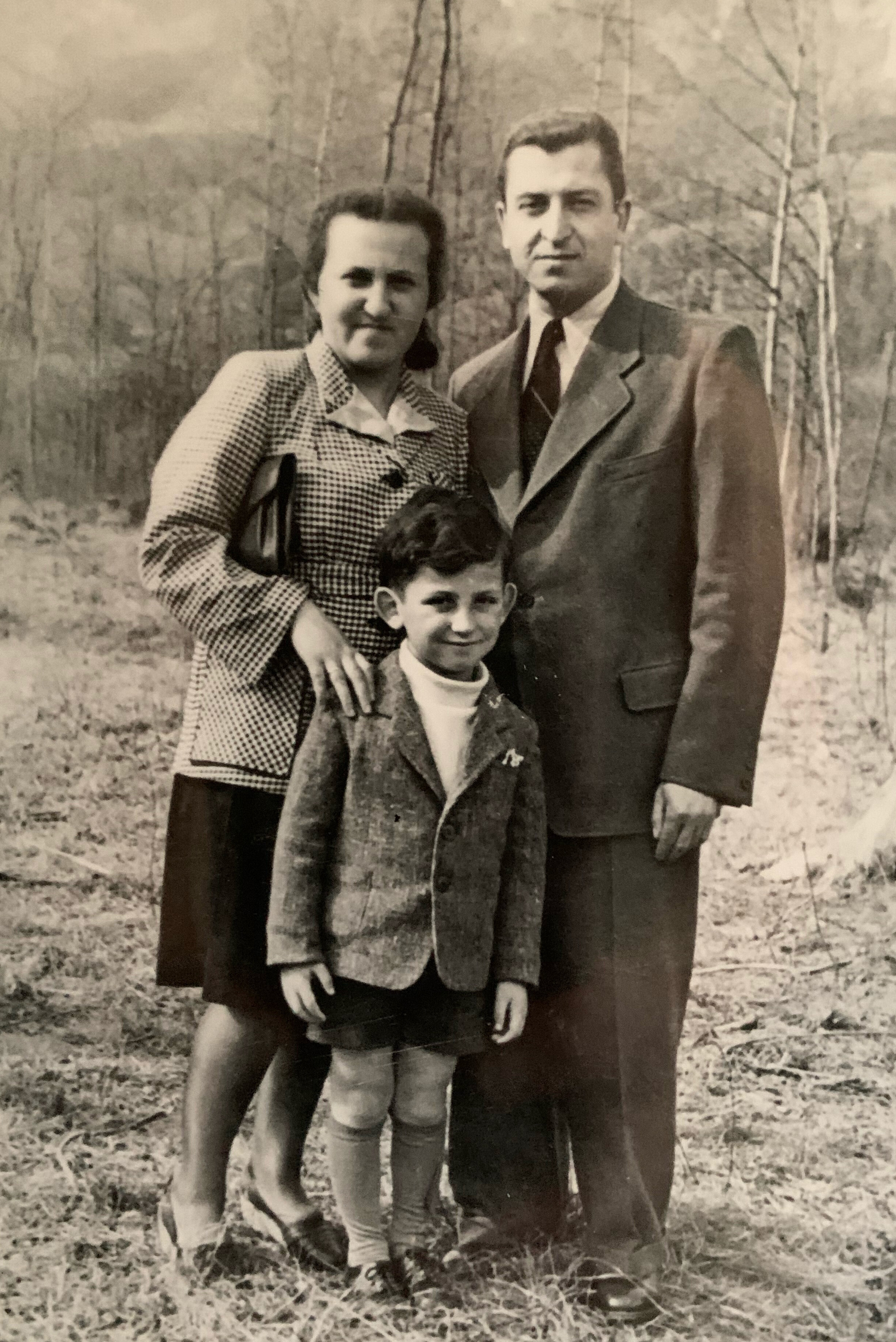At Aspect Film Works, storytelling is our greatest passion. Normally, we like to tell other people's stories, but today happens to be International Holocaust Remembrance Day, which has compelled me (Alex) to tell the story of my grandparents on my mother's side.
January 27th 1945, marked the date of liberation of the Nazi Concentration and Extermination camp of Auschwitz-Birkenau by Soviet troops. In November 2005, January 27th was officially proclaimed International Holocaust Remembrance Day.
My grandparents Mania and Myroslaw Seneta, were born in a small town in Ukraine called Stary Sambor in the early 1900's. Although my grandfather was Catholic and my grandmother Jewish (a union that was disapproved of at the time), the two were married and had a son, my uncle Eugene. When World War 2 began, my grandmother, along with the rest of the Jewish people in the town were told to wear a white armband with a star on it, and were put to various kinds of manual labour. My grandmother had to walk 5 kilometres to and from work (digging gravel at the riverside from 8am in the morning to 5pm in the afternoon) each day, and no time was given for lunch. She could eat only when the police were not watching. If she could not keep up, she was beaten. Her weight plummeted from 55kg to 35kg.
She continued to stay with her family when not working, but in May 1942, was ordered into the Ghetto, an area of the town surrounded by barbed wire. There were between 3 and 4 thousand Jews in the Ghetto initially, with 10 to 20 people dying daily. Luckily, my grandfather's father was able to bribe the jailers to let my grandmother out of the Ghetto, one day before the rest of the Jews were moved on by the police - most of them to concentration camps.
8 people from my grandmother's family were taken, including her two sisters, whom she never saw again. My grandmother recollected after the war, that she knew of no other survivors from that Ghetto.
My grandfather had been preparing a hole under the floorboards in the bedroom of their home (approximately 2ft x 3ft x 4ft). After my grandmother escaped from the Ghetto, she had to run to that hole to hide many times per day; and on occasions when soldiers were billeted at the home, she had to stay in the hole for two days at a time. She hid for a period of two years, until the Germans left the town in August 1944.
In March 1944, my grandfather was arrested and sent to Czechoslovakia to work as a forced labourer in a quarry. He became ill, and was then sent on to work as a farm labourer, where he stayed until 1946. The Soviet army liberated Stary Sambor in August 1944, and at this time my grandmother and uncle left for Germany via Jewish transports heading for Bavaria, where there was a large camp for Jewish survivors. During transit, my grandmother made contact with my grandfather's brother, from whom she learned her husband was alive, and from whom my grandfather learned that his wife and son were still alive.
Acting on an instinct, my grandmother decided to remain at the transit camp with my uncle, and by some miracle later that day they saw my grandfather walking with one small suitcase along the wired perimeter of the camp. She said to my uncle “Look, that’s your daddy.”
After several years living in various respective Jewish and Ukrainian survivor camps in Germany, the family left for Australia on February 7th 1949, via Naples in Italy. After a period living in the transit camp at Bonegilla in Victoria, they moved to Adelaide (my home city) where my mother Irene was born on June 20th, 1951.
My grandparents' story is just one of many millions of Holocaust stories. They were incredibly lucky to have survived, after living through what I can only imagine to be one of the darkest and most horrific periods in our history. Very sadly, I never had the opportunity to meet either of them, as they both passed away before I was born. Thank you for taking the time to read their story. Let it be a reminder to us all while living through a global pandemic, that we are very fortunate to be suffering less than many who have gone before us.


